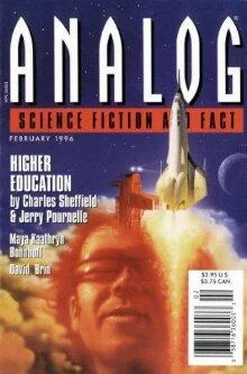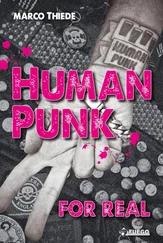Mark Rich - Human Lives Saved
Здесь есть возможность читать онлайн «Mark Rich - Human Lives Saved» весь текст электронной книги совершенно бесплатно (целиком полную версию без сокращений). В некоторых случаях можно слушать аудио, скачать через торрент в формате fb2 и присутствует краткое содержание. Год выпуска: 1996, Издательство: Dell Magazines, Жанр: Фантастика и фэнтези, на английском языке. Описание произведения, (предисловие) а так же отзывы посетителей доступны на портале библиотеки ЛибКат.
- Название:Human Lives Saved
- Автор:
- Издательство:Dell Magazines
- Жанр:
- Год:1996
- ISBN:нет данных
- Рейтинг книги:5 / 5. Голосов: 1
-
Избранное:Добавить в избранное
- Отзывы:
-
Ваша оценка:
- 100
- 1
- 2
- 3
- 4
- 5
Human Lives Saved: краткое содержание, описание и аннотация
Предлагаем к чтению аннотацию, описание, краткое содержание или предисловие (зависит от того, что написал сам автор книги «Human Lives Saved»). Если вы не нашли необходимую информацию о книге — напишите в комментариях, мы постараемся отыскать её.
Human Lives Saved — читать онлайн бесплатно полную книгу (весь текст) целиком
Ниже представлен текст книги, разбитый по страницам. Система сохранения места последней прочитанной страницы, позволяет с удобством читать онлайн бесплатно книгу «Human Lives Saved», без необходимости каждый раз заново искать на чём Вы остановились. Поставьте закладку, и сможете в любой момент перейти на страницу, на которой закончили чтение.
Интервал:
Закладка:
“An example of what I mean. When most people talk about a door, what do they see? They see a slab of wood, or an aluminum frame with a panel and screen, or two sheets of plywood with an air space in between. But when I say the word ‘door’ to you, what do you see? Do you see the wood or aluminum or anything flat and taller than it is wide? No—or at least you didn’t. By now, you’ve adapted at least a little. Because I bet as a kid, because of this way you have of seeing things, when you learned what a door was, you pictured the handle, and maybe the hinges, and maybe the frame. Because you saw the interfaces. You saw what made the door different from the wall; and you thought that what other people saw as a door was the unimportant part.”
I stared at him. My first thought: He’s right! My second: How’s he know? Third: Who cares?
“In other words, you saw that a tool isn’t a tool without its handle. That’s what we believe, those of us studying interface. The interface is the tool. The interface defines our relation to our world. The interface is technology whole and entire!
“It wasn’t what you did in the Virchco tests that caught my eye, but how you did them. Almost everyone goes into a virtual environment and sees things. That limits their ability to act and make decisions. You are the first I’ve encountered to understand innately that everything in these tests is a tool that can be used —that what we’re doing is surrounding ourselves with every possible tool—or in other words every possible interface. Society is busy doing that all the time. It’s what I call maximization of culture. Maxxing on the availability of tools— and seeing the tools.”
After the initial stab of recognition in what he said, I grew nonchalant. I had no idea why he should be interested.
In three years, however, together with being engrossed in a set of training modules in computers and mathematics I never thought I could fathom, Means had me halfway toward seeing how to use my talents; and he had me on a project designed to mimic the way the eye perceives different shapes in motion. First I created a theoretical brain that could use a theoretical eye; next, a multiprocessor-backed real-time eye. My work had to do with how the brain makes bandies for the images the eye takes in.
In two more years I had the pair of eyes and the set of optic nerves with appropriate software that went into Hocus, the nexus of gigabyte access and multiplex process that looked like a rabbit and bred like one when it came to expenses: eight million dollars-plus and counting.
Which was nothing.
Nothing compared to what would come next.
The rest of the party left, with a few meaningful glances toward me from those who knew, and a puzzled look from Tony, who knew no more than bits and pieces.
I gave myself over to an impulse I hoped would be a good one:
I stepped down, walked to the door, locked it, and flipped around the Open/Closed, to have the former where we could see it.
We were open.
Joe said nothing, silently filling a beer for himself and looking self-absorbed, as if considering an impulse of his own.
He gave in, too.
He walked around the bar to the customer side and chose a seat a few down, so the bend in the bar separated us.
“It’s fantastic what Tony’s done— and he’s going to keep on doing it,” I said as a way of getting back on track.
“What do you mean?”
I noticed how he said these words. He meant the question for what it was: a question. He hid no resentments behind it, and no distrust. How different from a few years ago!
“I mean this project’s enough to keep Tony going for years. And it’s what Tony wants to do. But you know that Robert—”
“Robert. He wants the next thing.”
“Yes!”
“He wants—”
Joe shook his head, his facial muscles fighting between a smile and a frown. His eyes glistened at the difficulty; and at seeing it I felt something I had nearly forgotten.
“Yes,” I said again, fighting down my own excitement and fears.
“But hell,” he burst, “it’s the whole business all over again! You know why I got out of it and you know why I could never pick the project up again! My god, it’s a kind of immorality, isn’t it, to work on simulating an entire human system, and then rendering it into an independent entity— isn’t it? Isn’t it? I mean you realize what Tony and the whole crew— you, too—what you’re doing? You’re working on life itself!”
“Yes, but you—”
“Don’t interrupt me! Who the hell do you think you are to do that? It isn’t any game! It’s that last stop of science—because you know that if we create a human analog it’s no longer an isolated scientific project done for its own sake; it’s a matter of acting on behalf of everyone, because in creating an electronic organism, an entire being—it changes everything! We’re no longer alone! We’ve maybe even created our successor, our Moravician child! Once you do something like that it doesn’t just go away!”
“Joe,” I said. “Think about this. Put it in perspective. We are going to revive the project. We’re going to create a simulation of a human being, along the lines we’ve just explored with Tony’s rabbit. Self-generating systems will do most of the cell reproduction, with the DNA replaced by series of parallel processors; and, yes, it may turn out—we’re even hoping it will turn out that we’re not just creating an analog but an actual thinking and humanly feeling creature—an electronic being with a real-time model, or call it a ‘manifestation’ if you will, with whom we can interact in three-space, just as with Tony’s Hocus. And, yes, if that happens, then—”
“But you don’t get the point. You know why I quit before! We’re such goddamned hubris-filled idiots that we don’t realize how deeply flawed we are and don’t see it would be an absolute mistake to put ourselves in the position of creators!”
“We aren’t the creators!”
Joe had avoided my eyes in his ranting—maybe because he knew I heard his objections before, or at least knew of them: I had joined Med-Dyne after he left, after all. Robert had filled me in pretty well on what had preoccupied him. Joe had come to hate the idea of himself being responsible for the creation of life: his own faults loomed too large.
As if they loomed any larger than anyone else’s.
He met my eyes now, questioning me by silence.
“We aren’t. Not at all,” I said. “Look at what you believe, Joe. Do you believe in a God who made us human? I don’t, and last I knew you didn’t either. The Universe and its laws are the environment for emergent structures and phenomena, one of which we call life; and life itself creates sub-environments in the Universe suitable for its own propagation; in other words, life begets life.”
“We’re talking an entirely different order of things. We’re talking potentially intelligent life, intelligent electronic life we’re creating!”
“Exactly. Life begets life, and life includes intelligence, on various levels. It does! And intelligence begets—”
“But how can we justify it?”
“It may be an emergent quality of a technical society that we create forms of intelligence other than our own-like the form we’re after, electronic intelligence. Or should I say, it’s emergent that we create other forms of electronic intelligence, since we have electronic intelligence ourselves, biologically based; and our society, made up of thinking brains, might be viewed as a complex electronic network, each of the agents of which are working in roughly parallel ways and working on some different aspect of the central question—which is, How do we replicate ourselves? Replicate—not as organic human beings, but as electronic intelligences?”
Читать дальшеИнтервал:
Закладка:
Похожие книги на «Human Lives Saved»
Представляем Вашему вниманию похожие книги на «Human Lives Saved» списком для выбора. Мы отобрали схожую по названию и смыслу литературу в надежде предоставить читателям больше вариантов отыскать новые, интересные, ещё непрочитанные произведения.
Обсуждение, отзывы о книге «Human Lives Saved» и просто собственные мнения читателей. Оставьте ваши комментарии, напишите, что Вы думаете о произведении, его смысле или главных героях. Укажите что конкретно понравилось, а что нет, и почему Вы так считаете.












